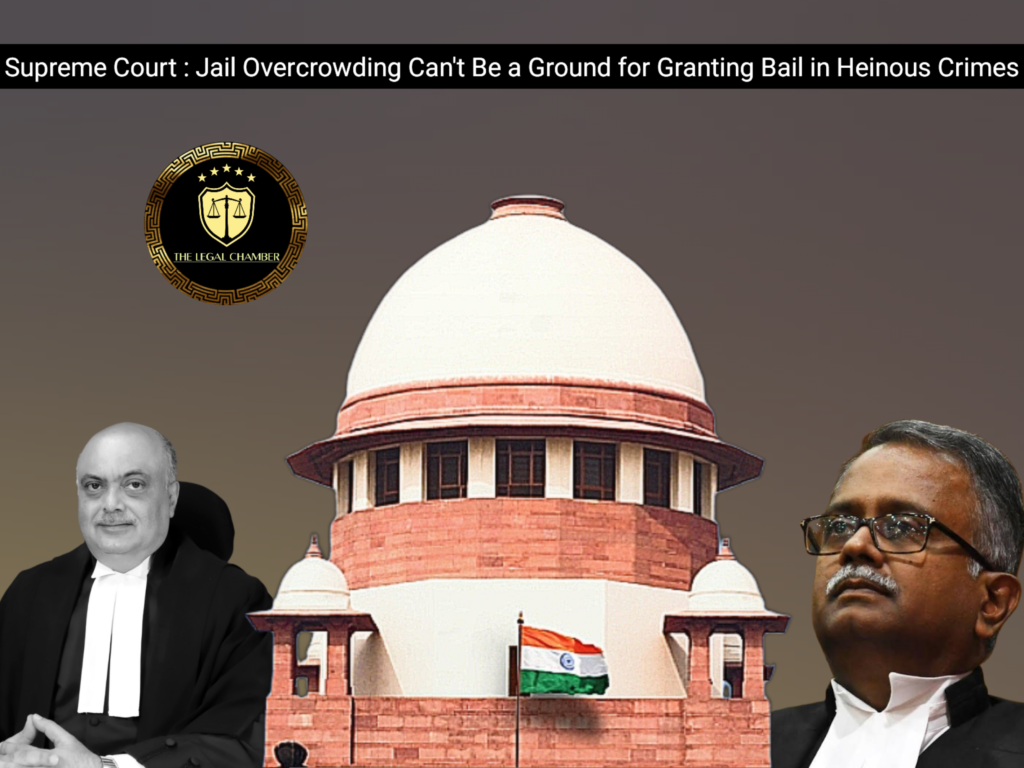
The Supreme Court held that the High Court erred in granting bail without properly considering the absence of “new circumstances” as mandated by the Court’s earlier judgment cancelling bail. The impugned order lacked cogent reasoning, relied on irrelevant factors like jail overcrowding, and failed to accord due deference to the Supreme Court’s previous decision, warranting its quashing.
Facts Of The Case:
The case involves an appeal by the informant, Ajwar, against an order of the Allahabad High Court granting bail to the accused, Waseem. Waseem was charged under various sections of the IPC, including Section 302 (murder). His bail was initially granted by the High Court in 2022 but was cancelled by the Supreme Court. A subsequent grant of bail by the High Court was again cancelled by the Supreme Court in a judgment dated 17.05.2024. In that judgment, while cancelling the bail, the Supreme Court left a window open for the accused to apply for bail afresh only if “any new circumstances emerging”. Pursuant to this, Waseem’s fresh bail application was rejected by the Trial Court but was allowed by the High Court in the impugned order. The appellant argued that the High Court’s order violated the spirit of the Supreme Court’s earlier judgment by delving into merits already concluded and by considering irrelevant factors like jail overcrowding, instead of identifying any genuine new circumstances that had emerged post the cancellation of bail.
Procedural History:
The procedural history of this case is extensive. The accused was initially granted bail by the High Court in August 2022, which was set aside by the Supreme Court in October 2022. The High Court again granted bail in December 2022, which was subsequently cancelled by the Supreme Court in its detailed judgment of May 2024. This judgment allowed for a fresh bail application only upon emergence of “new circumstances.” The accused’s subsequent bail application was rejected by the Trial Court in January 2025. However, the High Court granted bail for a third time in June 2025, leading the informant to file the present appeal before the Supreme Court, which has now resulted in the cancellation of bail for the third time.
READ ALSO : Supreme Court Rules: Rejecting Job Regularization on Multiple Grounds is Not Contempt of Court
Court Observation:
The Court observed that the High Court’s bail order was erroneous as it failed to identify any genuine “new circumstances” emerging after the Supreme Court’s last cancellation, which was a mandatory precondition. It held that the High Court disregarded the binding nature of the Supreme Court’s earlier judgment, relied on extraneous factors like jail overcrowding, and provided insufficient reasoning. The Court clarified that while bail orders need not elaborate on evidence, they must contain cogent and germane reasoning, especially when overriding a prior apex court decision. The Bench emphasized that deference must be given to Supreme Court orders in letter and spirit.
Final Decision & Judgement:
The Supreme Court allowed the appeal and set aside the High Court’s order granting bail to the accused. The bail granted to respondent no.1 was cancelled, and he was directed to surrender before the Trial Court within three weeks. The Court mandated the Trial Court to conclude the trial expeditiously. It clarified that the accused shall remain in custody until the trial’s conclusion but retained his liberty to approach the Supreme Court directly for bail if the trial is delayed for reasons not attributable to him.
Case Details:
Case Title: Ajwar vs. Waseem & Anr. Citation: (2025) INSC 968 Date of Judgement: 29th July 2025 Judges/Justice Name: Justice Ahsanuddin Amanullah and Justice S.V.N. Bhatti
Download The Judgement Here